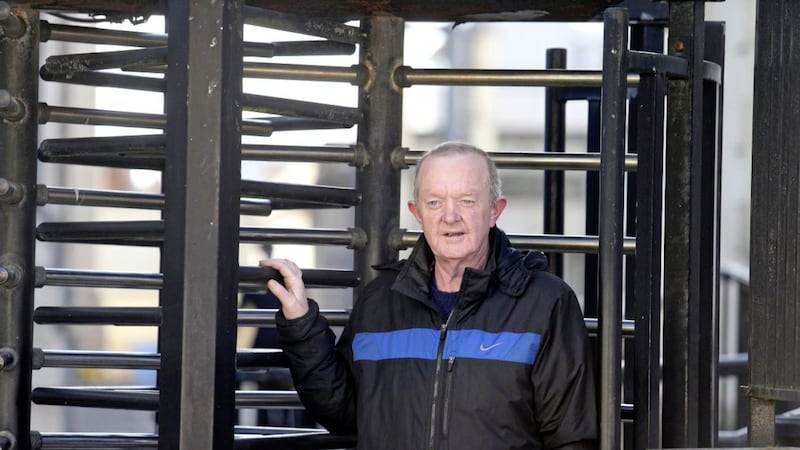POLICE have been given at least five more weeks to comply with court orders for disclosure of files held on a loyalist informer at the centre of alleged state collusion with paramilitary killers.
Senior judges also proposed a new approach aimed at speeding up the handover of documents in a batch of Troubles cases.
The potential blueprint was set out as they ruled on an appeal by the PSNI chief constable against being set a final deadline for compliance in a claim brought by a north Belfast man who survived two UVF attempts on his life.
John Flynn (58) is suing the PSNI over murder bids allegedly carried out by an agent who operated in the city's Mount Vernon area.
In 1992 a gunman tried to shoot him after he was lured to Whiteabbey Hospital.
Five years later a second attempt was made to kill him in a failed car bomb attack.
In 2014 the PSNI admitted a misfeasance claim and accepted he should be paid damages.
But the force emphatically denies negligence or having ever employed the covert human intelligence source - identified only as 'Informant 1'.
The agent is suspected of connections to 10-15 murders, paramilitary shootings, serious beatings, conspiracy to murder, robbery, hijackings and drug dealing.
Mr Flynn's action was triggered by former Police Ombudsman Nuala O'Loan's findings that some Special Branch officers colluded with loyalist killers.
Her Operation Ballast report, issued back in 2007, centred on the activities of a UVF gang allegedly led by Mount Vernon man Mark Haddock.
As part of the lawsuit Mr Flynn's lawyers are continuing to seek access to PSNI documents.
They argued the police admission of partial liability was a tactical move to avoid handing over all files on the informant and cover over the full extent of alleged collusion.
An affidavit filed by Mr Flynn claimed police either failed to arrest the agent for the murders and other crimes or else conducted "sham" interviews, despite knowing he was a leading UVF figure.
Misleading records were deliberately compiled, while other documents and forensic exhibits were either destroyed or lost, he alleged.
Mr Flynn also claimed: "I believe that the police knew I was at risk from Informant 1 and were quite content to let me be murdered by him and his associates."
In 2016 a High Court judge ordered the handover of 13 categories of police documents.
Counsel for the Chief Constable sought more time to provide them, saying the material spans more than a decade and a Public Interest Immunity (PII) process alone would cost in excess of £300,000.
But despite accepting the complexity of the process, another judge held that resource implications would not be of the extent suggested and set a final deadline for full compliance.
Ruling on the police appeal against that determination, Lord Chief Justice Sir Declan Morgan agreed with the "trenchant criticisms" of the police's failure to gather documents which had been in the ombudsman's possession.
However, he held that it had been wrong to conclude non-compliance stretched back over many years.
Delivering judgment in the Court of Appeal, Sir Declan said: "The approach to redaction presently employed by PSNI appears extremely wasteful and inevitably will add considerable time to the disclosure process."
Instead, he proposed a new approach centred on a "pressing obligation" on parties in legacy cases to work together.
Relevant documents should be provided in unredacted form to lawyers for the Chief Constable for consideration of the most effective way to make disclosure.
The parties should meet within four weeks to prepare a timeframe for completion of the process, the judge added.
He also suggested possible mediation to resolve any difficulties in litigation of this kind.
Stressing the "enormous urgency" in dealing with the issues, Sir Declan extended the time for compliance by five weeks.
"Whether any further time should be allowed will depend upon the applicant demonstrating its commitment to facilitate an expeditious and fair trial."








